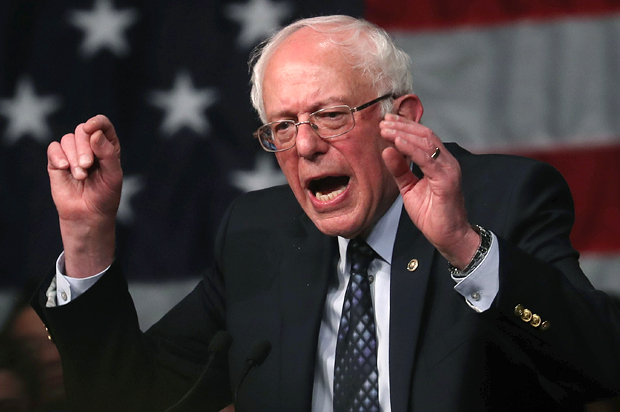The Democratic primary in New York tomorrow is significant for both candidates. With each primary, Bernie Sanders path to the nomination shrinks, as the opportunities to close the gap diminish. Currently, Hillary Clinton holds a commanding 250 pledged delegate lead – and an even greater lead among superdelegates, most of whom are steadfastly supporting Clinton.
Sanders has gained ground in the last week, cutting into Clinton’s net delegate lead thanks to second and third-stage victories in states like Colorado, Nevada, and Missouri. But New York is a potential game-changer: There are 291 Democratic delegates at stake, enough to change the narrative and trajectory of the race. If the Democrats didn’t award delegates proportionally, New York would be even bigger than it already is. Still, though, a win by Sanders would be an enormous boost to his campaign.
Clinton, who represented New York for eight years in the Senate, holds a double digit lead in the polls (the RealClear Politics average is 12.8 points). That’s not small, but neither is it insurmountable. And it’s worth recalling that pre-election polls are occasionally misleading, as they were in Michigan this year. At any rate, Clinton’s lead has narrowed in recent weeks, as Sanders has continued to build momentum in New York and elsewhere.
At a rally over the weekend in New York’s Prospect Park, for instance, Sanders drew more than 28,000 people, easily the largest of his campaign. Judging by the tone of his speech, Sanders knows how important tomorrow’s primary is. The last Democratic debate was the testiest by any measure, a sign of growing tensions on both sides, but the Vermont senator was noticeably harsh yesterday.
“Now, if you give a speech for $225,000 per speech,” Sanders told the crowd, “it must be a pretty damn good speech, must be a brilliant and insightful speech analyzing all of the world’s problems, must be a speech written in Shakespearean prose. And that is why I believe Secretary Clinton should share that speech with all of us.”
It’s hard to miss the sarcasm there, but the content is consistent with everything Sanders has said thus far. If there’s a difference, it’s tonal and stylistic. The Sanders campaign understands that time is running out, so they’ve decided to double down on their core message, hoping to ride the wave of momentum they’ve created in the last several weeks.
But let’s be clear: there are no “moral victories” for Sanders at this point. Limiting Clinton’s margin of victory to single digits in New York won’t alter the dynamics of the race. Her lead – in both pledged delegates and superdeleages – is too great. Even a close victory won’t suffice for Sanders. Given Clinton’s institutional support, winning narrowly will yield few, if any, delegates.
Sanders has to win in New York, in other words, and he has to win big. But that will be difficult. Sanders is quite good at attracting people to rallies, but he has to get them to the voting booth as well – otherwise none of it matters. The big question for Sanders is, will the young people and white liberals chanting at his rallies show up when he needs them to?
I explained in February why relying on young people to vote is a mistake. The numbers tell the story: “In 2012, the turnout rate among 18-24-year-olds was 41.2 percent. In 2008, when Obama was elected, young people turned out in record numbers, but still only 48.5 percent voted. By contrast, the turnout rates among adults ages 65 and older in 2012 and 2008 was 71.9 percent and 70.3 percent, respectively. And in the last midterm election (2014), youth voter turnout was a paltry 19.9 percent.”
For Sanders to have any shot in New York, young people will have to turnout in a big way, which is asking a lot in a primary contest. Older Democrats are siding overwhelmingly with Clinton, and unlike their younger counterparts, they vote – consistently. If Sanders pulls of an upset tomorrow, it will be because millennials made it happen. This is the only demographic in which Bernie has a reliable lead over Hillary. Even if the youth turnout is unusually high tomorrow, it may still not be enough for Sanders. But if he broadly outperforms expectations in other key demographics, a resounding win is entirely possible.

